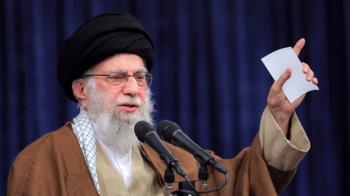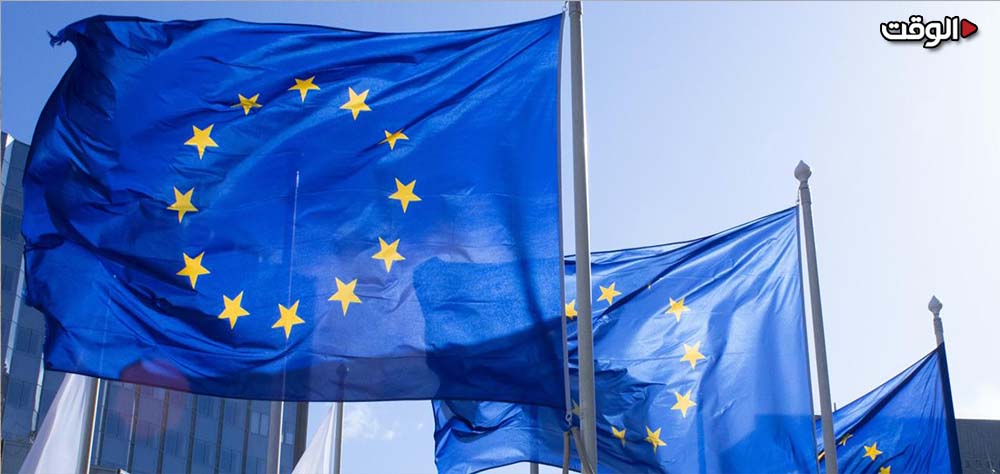Presidents of the diplomatic bodies of the European Union, on the verge of the monthly Council of Ministers meeting, where senior diplomats from Arab countries and the Zionist regime are anticipated to discuss the Gaza war, stressed the imperative of a two-state solution and the necessity to impose sanctions on extremist Zionist settlers along the West Bank. Following the rejection of requests for the establishment of a Palestinian state by Benjamin Netanyahu, the Prime Minister of the Zionist regime, it was decided that 27 EU foreign ministers would individually meet with their counterparts from the occupying regime and Palestine on Monday.
According to Alhurra network, initially, EU foreign ministers will meet separately with Israel Katz, the foreign minister of the Zionist regime, and then with Riyad al-Maliki, the foreign minister of the self-governing Palestinian authorities. A direct meeting between Katz and al-Maliki is not expected. As per the report, Katz and al-Maliki will also individually address the Foreign Affairs Council meeting of the European Union in Brussels on Monday. The foreign ministers of Saudi Arabia, Jordan, Egypt, and the Secretary-General of the Arab League will also attend this meeting.
Moreover, Josep Borrell, the head of EU foreign policy, will present a 10-point plan for peace between the Zionists and the Palestinians. On Monday, the Financial Times reported, citing European officials, that the European Union is urging its members to impose sanctions on the Zionist regime if Benjamin Netanyahu, the Prime Minister of the Zionist regime, persists in rejecting a Palestinian state. The English newspaper stated: This proposal reflects the frustration of EU members with Israel's rejection of the two-state solution. Nonetheless, the head of the French diplomatic apparatus also found the statements of the Prime Minister of the Zionist regime opposing the creation of Palestine worrisome and expressed hope that sanctions would be imposed on extremist settlers along the southwestern coast.
Prioritizing the Two-State Resolution
Before the European Union meeting, Josep Borrell, the head of foreign policy for the EU, who chairs the council, spoke about presenting a roadmap at the meeting to clarify the path to peace in the region. He told reporters: This roadmap is not about the reconciliation process. I think we should stop talking about this and seriously discuss the two-state solution. Emphasizing that peace can have different meanings, he added: We need to talk about the two-state solution. From now on, I will not talk about the reconciliation process and will focus on the two-state solution. The EU's foreign policy chief, referring to guest diplomats, stated that obstacles to achieving the two-state solution must be removed through dialogue. According to him, this process has been endorsed by the United Nations and accepted by the global community. Criticizing the harsh treatment of the defenseless and oppressed people of Palestine, he stated that Tel Aviv's approach to dealing with Hamas is not suitable and does not lead to peace.
Borrell, referring to the presence of foreign ministers from some Arab countries as well as the Zionist regime in the Council of Ministers meeting, stated that obstacles to achieving the two-state solution must be removed through dialogue. The EU's foreign policy chief, emphasizing that the Palestinian-Israeli conflict has no military solution, stated that the EU is serious about what is called the two-state solution. Reuters reported on Borrell's statements before the meeting that he told reporters: We need to start discussions about specific plans for the two-state solution. According to him, this process has been endorsed by the United Nations and accepted by the global community. "So, if Israel does not accept this solution, we need to discuss and see what other solution they have in mind. Are Palestinians forced to relocate? Or should they be massacred?"
In this regard, Elina Valtonen, the Minister for Foreign Affairs of Finland, also stated that without a two-state solution, sustainable peace in the region would not be achieved. Elina Valtonen told reporters: This is the position of the European Union, and we need to convince Israel that this is the only valid and acceptable path ahead. She added: Let's see the result of the European Council meeting, but we must stand firm on this position, emphasizing that the two-state solution is in the Zionist regime of israel’s interest and the only valid way forward. Correspondingly, the German Foreign Minister emphasized the necessity of achieving a two-state solution and recapped that: More humanitarian aid must be transferred to Gaza.
Resumption of Indirect Negotiations
After Zionist families intensified protests, reports from Hebrew-language media unveiled the occupying regime's efforts to restart indirect negotiations with Hamas for a prisoner exchange. Qatar, Egypt, and the United States are involved in planning. Channel 12 of the Zionist regime’s media reported that the regime aims for a phased agreement, beginning with a humanitarian exchange to release a significant number of Palestinian prisoners. Subsequently, the regime's cabinet would agree to a temporary ceasefire, allowing humanitarian aid into Gaza. Tel Aviv authorities believe this approach could shape field conditions favorably for the Zionist regime to achieve its war objectives. The next stage would involve a comprehensive exchange deal based on the principle of all for all.
Citing a Zionist official, the "Ynet" website contradicted Benjamin Netanyahu's statements, stating that there is an opportunity for progress towards an agreement, given the serious efforts of Qatar and the United States to find resolutions. Another official mentioned ongoing efforts to develop and reach an agreement based on the Qatari plan, though it has not been successful so far. Earlier reports indicated the planned trip of Brett McGurk, a senior advisor to the U.S. President, to Egypt and Qatar for negotiations related to the Zionist regime's conflict with Gaza and the release of Zionist prisoners. Axios reported that McGurk's trip signals new efforts by the Biden administration to secure an agreement on the release of Zionist prisoners.
This website, citing information from two U.S. officials, stated that reaching such an agreement is the sole means to establish a ceasefire in Gaza. According to the report, it is expected that McGurk will hold meetings with Mohammed bin Abdulrahman Al Thani, the Prime Minister and Foreign Minister of Qatar, in Doha, and with Abbas Kamel, the head of Egypt's intelligence organization, in Cairo. McGurk's current visit is his second to the region this month, focusing on negotiations regarding the release of prisoners and the ongoing conflict between the Zionist regime and the Gaza Strip. His first trip to Doha occurred in January.
In connection with this, the Wall Street Journal, relying on insights from officials involved in the negotiations, reported that the United States, Egypt, and Qatar are exerting pressure on the Zionist regime and the Palestinian Islamic Resistance Movement (Hamas) to reach an agreement on a prisoner exchange.
Although news sources indicate that Hamas and the Zionist regime haven't agreed to the newly proposed conditions, both parties have expressed their willingness to resume negotiations. The Wall Street Journal highlighted that the objective of the new proposal, endorsed by Washington, Doha, and Cairo, is to achieve a comprehensive ceasefire in Gaza through a prisoner exchange agreement between the involved parties. McGurk engaged in discussions with Zionist regime officials last week concerning Zionist prisoners. Additionally, Joe Biden addressed this matter with Benjamin Netanyahu, the Prime Minister of the Zionist regime, on Friday.



























